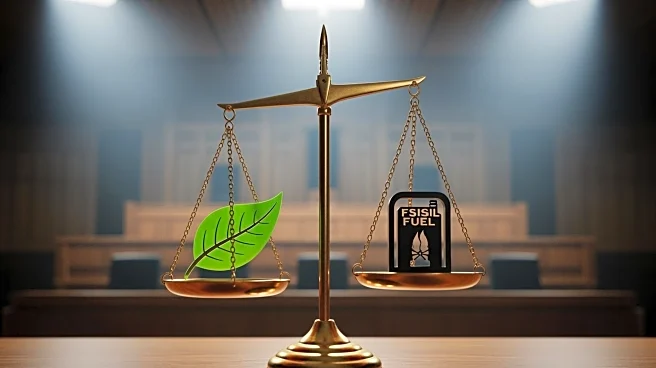What's Happening?
ExxonMobil Corp. has initiated a lawsuit against the state of California, challenging two newly enacted state laws that require large corporations to disclose their greenhouse gas emissions and assess
the financial risks posed by climate change. The company argues that these laws infringe upon its First Amendment rights by compelling it to adopt a specific stance on climate change. The lawsuit, filed recently, claims that the laws conflict with federal regulations, particularly those governed by the U.S. Securities and Exchange Commission, which already mandate certain disclosures from publicly traded companies. ExxonMobil contends that the state laws unfairly target large corporations, which California deems most responsible for climate change, and that they attempt to regulate corporate conduct and speech beyond state borders.
Why It's Important?
This legal battle highlights the ongoing tension between state-level environmental regulations and federal oversight, particularly in the realm of corporate governance and climate change. The outcome of this lawsuit could have significant implications for how states can legislate corporate transparency and accountability regarding environmental impacts. If ExxonMobil's challenge is successful, it may deter other states from enacting similar laws, potentially slowing down efforts to increase corporate responsibility for climate change. Conversely, if California prevails, it could embolden other states to implement stringent environmental disclosure requirements, thereby increasing pressure on corporations to address climate-related risks more transparently.
What's Next?
The court's decision on this matter will be closely watched by both environmental advocates and the business community. A ruling in favor of ExxonMobil could prompt a reevaluation of state-level climate policies and their alignment with federal regulations. On the other hand, a decision upholding California's laws might lead to a wave of similar legislative efforts across the country, as states seek to hold corporations accountable for their environmental impact. The case could also escalate to higher courts, potentially setting a precedent for the balance of power between state and federal regulation of corporate environmental disclosures.










